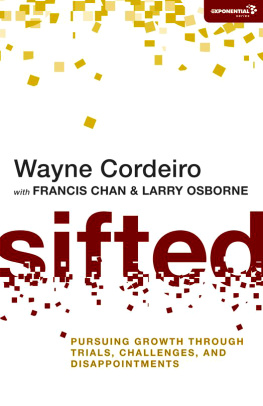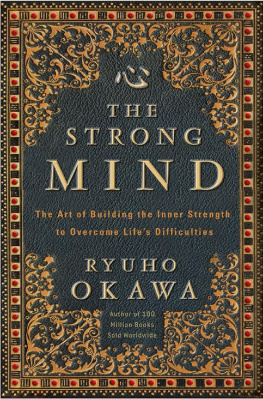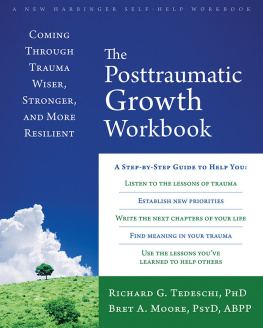CHOP
WOOD
CARRY
WATER
HOW TO FALL IN LOVE WITH THE PROCESS OF BECOMING GREAT
JOSHUA MEDCALF
Copyright 2015 Joshua Medcalf.
All rights reserved. No part of this book may be reproduced, stored, or transmitted by any meanswhether auditory, graphic, mechanical, or electronicwithout written permission of both publisher and author, except in the case of brief excerpts used in critical articles and reviews. Unauthorized reproduction of any part of this work is illegal and is punishable by law.
ISBN: 978-1-4834-4178-8 (sc)
ISBN: 978-1-4834-4177-1 (e)
Because of the dynamic nature of the Internet, any web addresses or links contained in this book may have changed since publication and may no longer be valid. The views expressed in this work are solely those of the author and do not necessarily reflect the views of the publisher, and the publisher hereby disclaims any responsibility for them.
Any people depicted in stock imagery provided by Thinkstock are models, and such images are being used for illustrative purposes only.
Certain stock imagery Thinkstock.
Lulu Publishing Services rev. date: 11/30/2015
CONTENTS
-CHAPTER 1
Chop Wood, Carry Water
For as long as his family could remember, John and his younger brother Jordan had been in love with the samurai culture of Japan. When John was only eight years old, his family visited many places in Asia. He and Jordan excitedly explored every place they visited, and dreamt of returning one day to become their favorite type of samurai warriors: arc hers .
A year later, tragedy struck as the family was in a bad car accident and Jordan was severely injured. The rest of the family was pretty banged up, but Jordan was barely hanging onto life in the ICU. For the first few months John sat at his bedside, only leaving the hospital to shower two times a week, reading him stories throughout the day about the samurai culture that they both loved so much. Every night they would fall asleep to Jackie Chan movies. Johns parents even let him miss the first month of school.
Eventually after five months of being in the hospital Jordan was cleared to go home. The doctors said he would never again be able to talk, walk, or feed himself. Jordan still found ways to communicate and play with John and they became even closer than they were before the accident. John always admired his brothers upbeat attitude and warm energy despite his circumstances. The doctors said for Jordan to go through a normal day it required as much energy as it does for an average person to run a marathon.
As John entered his teenage years, he never forgot their shared love of the samurai, and over time his fascination turned to deep admiration and lasting respect. He began to think more and more about pursuing it in his future.
Finally, when he turned eighteen, John bought a one-way ticket to an ancient city in Japan, intent on fulfilling his boyhood dream. He enrolled as an apprentice to a small community of samurai who lived outside the city walls, practicing their timeless traditions. There, he knew he could become a samurai archer.
When John arrived, he was greeted by a friendly old sensei named Akira. He helped John unload his bags and get settled. As they walked the grounds, taking a look at the advanced training areas and shooting ranges, John grew more and more excited. This place was amazing! He couldnt wait to get started.
But the next morning, Akira gathered the newly arrived apprentices and informed them of their first task: for the rest of the morning, they would chop wood and carry water.
John was surprised and confused. He addressed his teacher with the proper title of respect that they had been taught: Akira-sensei, what do you mean?
The old man explained that their community was outfitted with every modern convenience, except for heat and running water. Instead of using gas or electricity, they burned wood for heat when the weather grew cold. And in order to use water in the bathrooms and kitchen, it had to be brought by hand from a well outside. Thus, in order for the community to use water and stay warm during the winter, the community depended on everyone to chop wood and carry water.
But when will we get to shoot? John wondered aloud.
Akira just smiled. Shooting will come soon enough. But first you must chop wood, and carry water.
John was frustrated, but he obeyed. He trusted his senseis wisdom, and knew that in time, they would move on to more exciting things.
-CHAPTER 2
Building Your Own House
The next day was hot and muggy. John sweated as he drove his axe through log after log. His shoulders ached as he hauled bucket after bucket of water from the well into the house, and his hands began to blister from the friction of the axe handle. It was frustrating watching men old enough to be in retirement homes chop wood and carry water so effortlessly. But he kept working, remembering Akiras words that, shooting will come soon enough.
Finally, after the days work had finished, Akira took John aside. He handed him a cup of cool water and told him a story.
He told John that in Japan they have a deep love of architecture, and there once was a man named Kota who built some of the finest houses in all of Tokyo. His work became world famous due to his dedication to the process, his willingness to beat on his craft, and his relentless devotion to keep learning, even late into his career.
Eventually though, Kota grew tired of building homes for other people and he was ready to retire. He had been building homes for over thirty years, and he was ready to move on. He wanted to travel and spend lots of time with his grandkids.
One day, Kota approached his boss, and turned in his two-week notice.
His boss said, Kota, we are forever indebted to you for the magnificent work you have done for our company, and we are so grateful you have worked for us for so long. We do have one favor to ask of you though. Could you please build one more house? It is a very important house, for a very important client, and everyone in the company agreed it needs your magic touch!
Kota was frustrated. He would have to cancel two trips and postpone his new life, all for one house. He told his boss that he needed a day to think about it. After talking it over with his wife, he gave in and decided he would build one more house. But he told his boss, This is the very last one!
But while Kota had agreed with his head to build this last house, his heart was no longer in it. He had always been very hands-on through the entire building process, always selecting the finest materials by hand and making sure every detail was diligently tended to.
But this house was different.
He viewed it more as an obligation than an opportunity . He delegated much of the work, and consequently a lot of things started slipping through the cracks. The house would be up to code, but as it started to come together, it was obvious that it lacked the wow factor that Kotas other homes were known for.
Kota knew in his heart that this was far from his best work, but he was over it and ready to move on to the next phase of his life. The next phase was much more appealing and important to him than the present phase.
After four months had passed, Kota finally finished the house.
He went back to his boss, telling him, I did what you asked. Now I am asking, one last time, for your blessing to retire.
His boss said, Thank you Kota! We just have one more thing!
Now Kota was beginning to get really upset because he thought they were going to ask him to build another house.
His boss reached into his desk and pulled out a very small black box with a red ribbon tied around it. He handed the box to Kota, and said, We are so grateful for you, Kota. This gift is a token of our appreciation.
Next page






